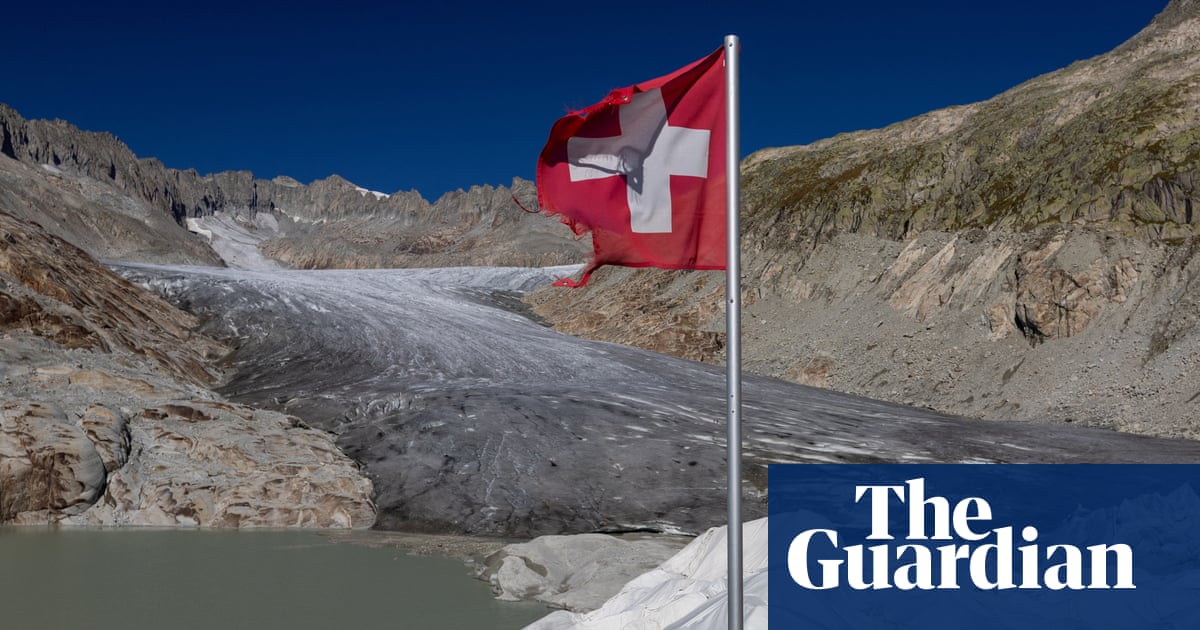Ahhh, the “continental shelf” toilet
BeautifulMind ♾️
Late-diagnosed autistic, special interest-haver, dad, cyclist, software professional
- 10 Posts
- 156 Comments

 124·1 year ago
124·1 year agoEhhhhhhh. 😒
For the ‘but sport has to be fair’ people, stop. Sport will never be fair, there are always people with better genetics, and with better access to training and equipment and the time to devote to developing their potential, bla bla bla.
The people trying to lawyer about who is or isn’t a woman here aren’t here to make sport fair, they’re using the fact you’d like sport to be fair as a way to get you to support their demand to be able to reduce sport into a thing they can pick winners with by disqualifying people on arbitrary standards they get to invent.I mean, the people that have been insisting ‘you’re a woman if you were born with those parts’ are now insisting ‘you’re not a woman if I feel like you’re not a woman’. Your takeaway here is that the pretexts will continue to change in order to get or keep your support, the underlying thrust is they want to discriminate against people that don’t fit in to their ideas of what being a woman should mean.

 20·1 year ago
20·1 year agoIt’s ABOUT TIME
Srsly, watching grocery chains consolidate and regional prices for staples like butter and cheese go up by 50% in a matter of months got me pretty mad- I mean, on the one hand those things didn’t become 50% more attractive or more expensive to make, they just didn’t have to compete on price. It was really the fact that they could do it and get away with it that hurt the most.

 5·1 year ago
5·1 year agoOK, so now I halfway-hope the vigilantes that try to do this will end up facing criminal charges for it
But, I also halfway-expect cops and prosecutors to look the other way if the victims of this kind of crime ends up being the kind of people they’d be disproportionately policing and convicting anyhow

 39·1 year ago
39·1 year ago…thus showing that the “Law and Order” party was never about law, they just want a particular kind of order- that is, a hierarchy wherein people below them on the status-ladder know not to try to hold them accountable to anything, including the law or even plain decency.
To them, the law is the cudgel to keep the poors and plebes in their place- low in the order- never to be applied to them.

 101·2 years ago
101·2 years agoFun fact: spreading conspiracy theories about the evils of fluoride in the water (it’s mind control! pollutes our precious bodily fluids!) was one of the talking points that crypto-fascists threw against the wall to see if it would stick- if you recall the line about your “precious bodily fluids” in Dr. Strangelove, that was a nod to that particular vein of conspiracy theory that was making the rounds in the far-loony fringes of what was then the Republican party

 1·2 years ago
1·2 years agoYou mean something like a third Reich?
Well, yeah. In very real ways WWII was about upending the post-WW1 order (which was punitive of Germany generally). It’s really interesting to understand how crazy the flows of money were, and how badly the US in particular bungled its role as the issuer of the world’s de facto reserve currency at the time- in the aftermath of WWI, Germany and its allies were made to pay reparations, France occupied the industrial territory on their border, and any money France or Belgium or Holland received in reparations promptly went to American banks, to repay war bonds borrowed to finance the fighting (which had, in turn, been spent in American factories on war materiel, weapons, munitions, etc).
https://www.theatlantic.com/international/archive/2014/12/the-real-story-of-how-america-became-an-economic-superpower/384034/ (sorry this is paywalled now, it was a really good read when it was available so I’ll summarize briefly)
By the end of the first world war, all of the belligerent nations’ economies were in tatters, their leadership were forced to inflate their currencies to make payments- but the US declined to inflate its own currency to make it workable for them- and when the US didn’t think about its new role in maintaining a viable world order, it put everyone that owed it anything in the position of paying their debts not in their own inflated currencies, but in US dollars. This essentially collapsed the German economy and its currency, and it was just unnecessary.

 12·2 years ago
12·2 years agoI wonder why we can’t just decode the term ‘settler’ for what it is:
“terrorist”, but with state aegis and pliant media cooking up anodyne narrative cover

 18·2 years ago
18·2 years agoAll of these locations (Alaska, California, Hawaii, much of eastern Europe) are ones that Russia has at one point in its imperial or soviet history had either outposts or territorial claim to. Of course, much of Eastern Europe was as recently as the 1980s under the Kremlin’s direct control, either as puppet states or as territory Russia or the USSR directly claimed. Finland and Poland in particular have both been completely invaded by Russian forces multiple times, but at the moment they are built up defensively in ways that Russia quite honestly has zero chances of winning against.
Alaska was territory that imperial Russia claimed before any European country did. It was sold to the US during the Crimean war (1853) because Russia needed the money and in all likelihood it was going to lose it to Britain. Russia established early trading outposts in Alaska and California but sold or abandoned them after wiping out the fur animals they’d come to harvest and trade.
This talk for the benefit of Russian audiences is about reminding Russians of former imperial or soviet glory, but the problem with that historically is that it wasn’t actually glorious.
The current propaganda push to get Russians thinking they really have a shot at rolling back the map changes since Imperial times is just an effort to sustain Russia’s modern project: dismantling the post-WWII order in which the West (the US, in particular, but NATO and much of the UN) upholds alliances that Putin sees as against Russia’s interests.

 41·2 years ago
41·2 years agoLegitimately, how do they fix this? Like what options are there?
When it’s a feature and not a bug, you don’t “fix” it, it is working exactly as planned.
In the first paragraph the article all but prompts the Fed to jack up interest rates, which makes borrowing money more expensive and when employers don’t borrow or spend on payroll, the result is more people lose jobs and when fewer people have money, in theory that should reduce upward demand pressure on consumer goods prices. In short, jacking up interest rates is the Fed’s way of prompting layoffs and wage cuts- by making working people poorer. They’ve been doing this very effectively to keep wages under control, so much so that even when ‘inflation’ like this is just price gouging it’s the first thing Wall Street wants to hear.
Of course, this ‘interest rates fight inflation’ mantra assumes that the inflation is really caused by too much money out there competing to buy too few goods and services, but when it’s the result of price collusion or just price gouging, it means prices for things went up and wages just went down. (and that in turn makes Wall Street fat and happy)
In the case of real estate, it’s been established that real estate commissions (and prices) have been inflated due to price collusion among realtor groups- in the case of rents, there is a lawsuit over price collusion driving rents up.
When it comes to gas prices, that’s less likely to be price gouging but it is very likely to be the consequence of supply/production decisions made with politics in mind, by people that probably stand to gain politically if voters vote against the incumbent.

 191·2 years ago
191·2 years agoWhen you have financial engineers overriding the decisions of mechanical engineers, you get crashy airplanes and eventually, caught up murdering people that might talk to investigators in order to defend those juicy profits
…sort of like how when administrators and insurance folk and lawyers and judges override the decisions of doctors and nurses, you end up with highly profitable hospitals and people dying for it
…all a bit like when the bean counters run your software company, layoffs designed to boost stock price by showing investors ‘fiscal discipline’ leaves your engineering teams shorthanded and forces them to de-prioritize bug fixes and dealing with technical debt and rigorous testing and you end up shipping lots of bugs when you release your product

 241·2 years ago
241·2 years ago“total victory” sure sounds like they’ve given some thought to their objectives and it’s no accident they’re killing lots of civilians

 16·2 years ago
16·2 years agoI’ve been watching the tech to make actual meat from cell lines emerge with some optimism- it promises to make it possible for us to have meat in our diets without all the greenhouse gases and feedlots and the like- but it also threatens to consolidate the protein industry into even fewer corporate hands if it’s not well-regulated.
The meat industry is honestly pretty awful (environmentally, politically, ethically, etc.) and I find myself rooting for the plucky young frankenmonsters that might come along and knock them down even though I’m pretty sure they’ll be worse if they’re not well regulated from the start.

 11·2 years ago
11·2 years ago…you really do need to be specific. Otherwise, it sounds like you’re claiming that “the production processes” (of what, everything? all products in the entire economy?) require PFOAs- and that’s plain bullshit.
Yes, there are some products for which there aren’t equivalent inputs, and you don’t need to be vague and generalize over all of productive everything in the economy in order to make that point- but given the opportunity to be specific, you specified “production of base chemicals that are used in various other follow-up products” and that’s not a straight or specific answer to a direct question.

 1·2 years ago
1·2 years agothere is no other material known to withstand the temperatures and pressures needed in the production processes?
Production of what, exactly?

 2·2 years ago
2·2 years agoYes, the downsides of at-large reps would surely be that if no one rep is responsible for particular local issue(s), it’s possible that none would take it up and that would leave some constituencies unrepresented. My thought about that is that when district maps are drawn to purposely divide particular constituencies (I mean, look at all those pack-and-crack maps that split minority groups into districts that mostly elect people that don’t represent them), an at-large system might allow those constituencies to unify around particular at-large reps?
I don’t know, I’m spit-balling here. But thank you for taking up the question constructively!

 17·2 years ago
17·2 years agoAaaaaaand in 3… 2… 1… abortion rights are about to become a bit more popular at the polls

 3·2 years ago
3·2 years agoRanked Choice Voting? 100% approve.
Get rid of the EC entirely. The popular vote would work quite a bit better as a means of ensuring power is exercised with the consent of the governed.
Scotus and congress both desperately need oversight that is different from ‘we oversee ourselves and find we did nothing wrong’ when obvs. that doesn’t work too well
Tax prep companies… I wish them a prompt and thorough viking funeral.
Fun fact about corporate power at the time of the framers: the colonists felt first-hand the abuse of being effectively governed by crown corporations and shortly after the founding of the USA, corporations were drastically limited in what they could do- for example, they could not engage in politics, they could not own other corporations, could not engage in activities not strictly related to their charters, had charters of finite span, and their charters could be revoked for any violations. If corporations are going to be people today, it’s about damned time we started charging them with crimes when they commit crimes- and yank their charters if they re-offend.
One thing worth questioning: do we really need representative districts? Why not have at-large representatives on a per-state basis, with seats allocated to states/apportioned via census? It would be pretty hard to gerrymander an at-large system, I think

 20·2 years ago
20·2 years agoWhile they’re at it, why not cap processing fees as junk fees? It for sure doesn’t cost 2.9% of your grocery bill to facilitate the payment- it’s all automated and there’s little to no labor involved in the actual processing, it’s just collecting economic rent












Probably capsaicin